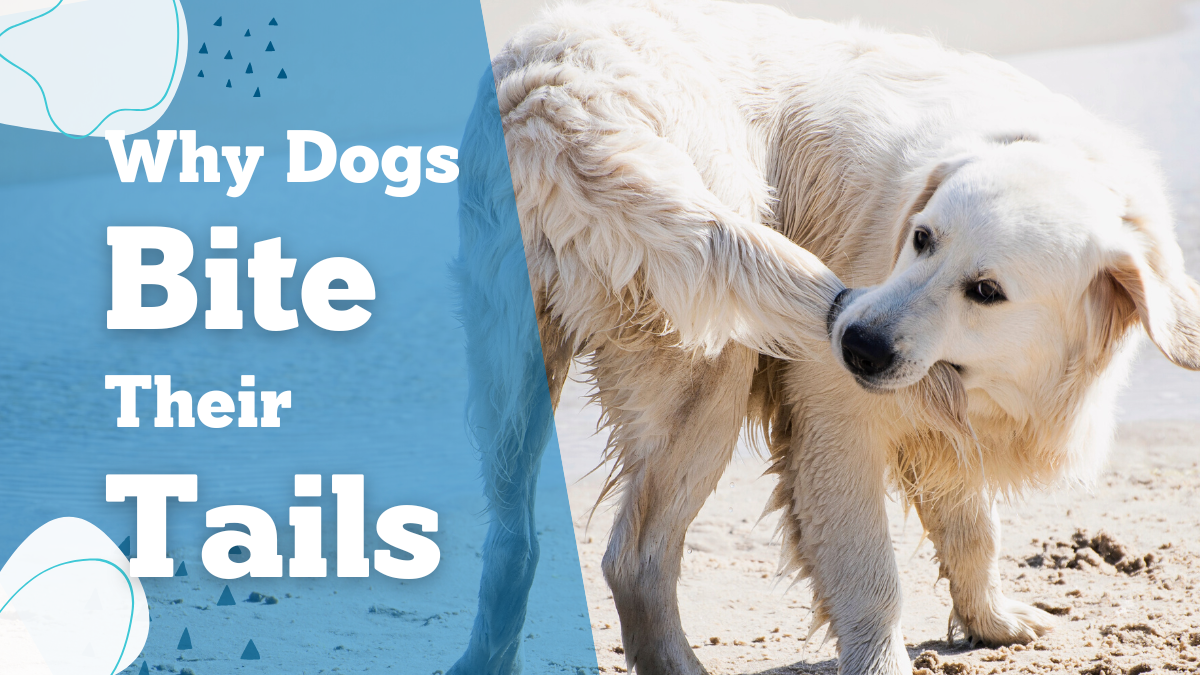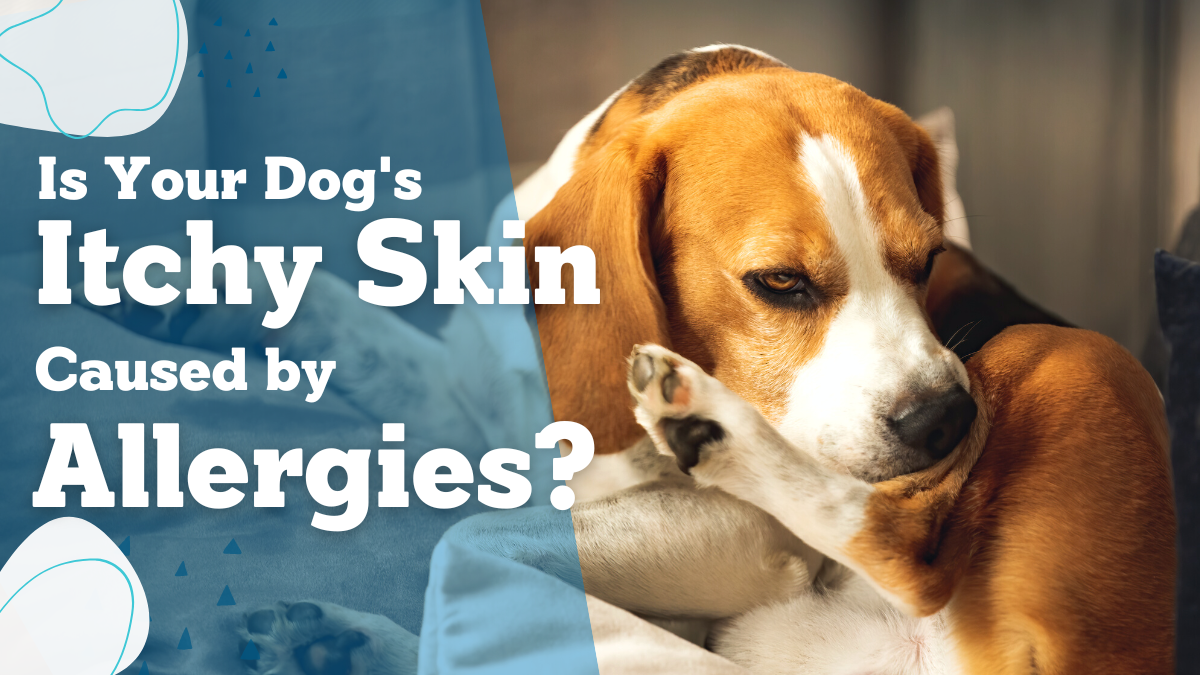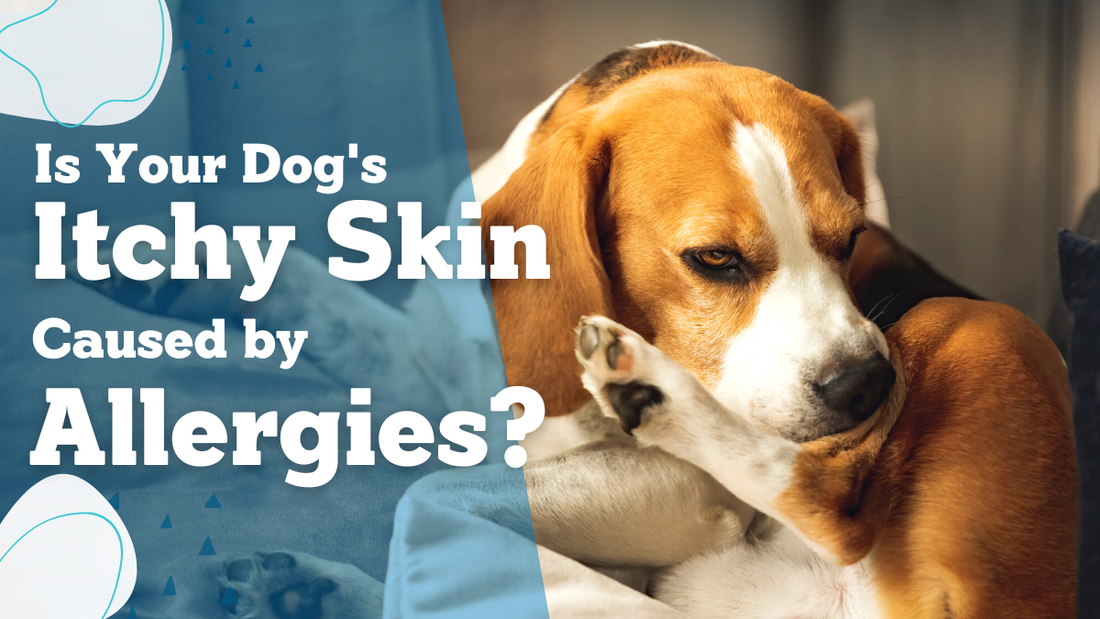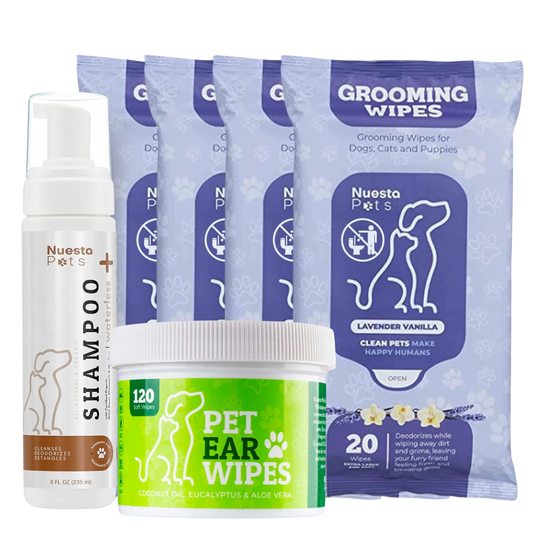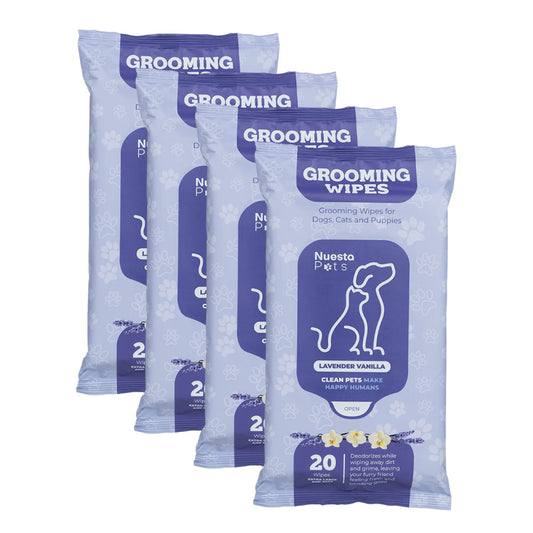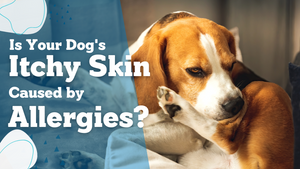Are you worried about your dog's constant itching and scratching? You may be dealing with allergies. While there are many potential causes for canine itchiness, allergies are one of the most common culprits. We'll take a look at common allergens, examine the symptoms in dogs, and explore prevention and treatment options. By taking the right steps, you can keep your furry companion happy and healthy.

Causes of Allergies
Dog allergies can be caused by a variety of allergens, including pollen, dust mites, mold, and certain foods. Dogs may also develop allergies to flea bites or the saliva from fleas. In some cases, contact with certain fabrics or household chemicals can trigger an allergic reaction as well.
Environmental Allergens
Seasonal allergies are among the most common causes of canine itchiness and scratching. Dogs can be sensitive to seasonal changes just like humans are. When spring arrives and plants begin to blossom, your pup may start sneezing and itching more often due to exposure to pollen in the air. Similarly, falling temperatures during autumn months could cause issues for your dog if they're allergic to ragweed or other plants that grow during cooler weather.
Food Allergens
Food allergies in dogs are caused by an abnormal immune reaction to a certain food or ingredient. The most common foods that are linked to food allergies in dogs include beef, dairy, wheat, chicken, lamb, soy, and eggs. Some dogs may also be sensitive to alternative proteins such as fish.
Contact Allergens
Contact allergies can be caused by a variety of substances found in your home. These allergens often cause an inflammatory reaction on the skin which leads to itching and scratching. Common contact allergens for dogs include wool, carpets, detergents, and other cleaning products.
Many dogs are highly sensitive to insect bites, such as flea and tick bites. These can cause an allergic reaction known as flea allergy dermatitis, which is an inflammation of the skin caused by an immune response to flea saliva.
Why is your dog scratching?
One way to identify the type of allergy your dog may have is to keep a food and environmental diary. This diary should include information about the dog's diet, activities, and any new items they came into contact with. It's important to note any changes in behavior, such as scratching excessively, as well as the time of day when symptoms appear.
A dog diary can help you track your dog's habits and highlight any trends. Over time, you may be able to identify a pattern of behaviors that can help you pinpoint the underlying cause of their itching.

Symptoms of Dog Allergies
It's important to recognize the signs of allergies in dogs so that you can take steps to address the issue. When a dog is exposed to an allergen, their immune system responds by producing antibodies. These antibodies then bind to the allergens and trigger a cascade of reactions that can lead to inflammation, itching, and other allergic symptoms.
Allergic reactions in dogs can range from mild irritation to severe discomfort, depending on the allergen involved.
Common symptoms of canine allergies include:
- excessive scratching
- licking their paws repeatedly
- rubbing their face or body against furniture or other surfaces
- hair loss near the affected area(s)
- skin irritation
- recurring ear infections

What is Causing Your Dog's Allergies?
Food allergies can be identified by symptoms such as red, itchy skin and digestive issues like vomiting or diarrhea. Environmental allergies may present themselves in the form of excessive itching, sneezing, coughing, watery eyes, or nasal discharge. Contact allergies are usually characterized by localized itching on specific parts of the dogs, such as the face, belly, or paws.
Dog's Skin Reactions
When a dog's body has an overactive response to certain allergens like pollen or dust mites, it may develop into a skin condition called allergic dermatitis (atopic dermatitis). Your dog's intense scratching can cause dry skin and flakiness, which further irritates the skin, leading to an overproduction of oils and more inflammation. This can create a greasy feel to the dog's coat.
The frequent scratching caused by allergic dermatitis can also lead to inflamed patches of skin known as hot spots. Hot spots are painful and often become skin infections if not treated properly.

How to Prevent Dog Allergies
The best way to prevent allergies in your dog is to identify the potential allergen causing your dog's itching and avoid it whenever possible.
At-Home Care
You can help keep your pup comfortable by regularly brushing and bathing their whole body. Regular grooming will help remove allergens from your dog's fur and reduce itching. Choose a hypoallergenic shampoo that is designed for your dog's sensitive skin to avoid irritation. Keeping your pet's fur clean and dry is important, as allergens can often become trapped in damp or dirty fur.
To limit seasonal allergies, try keeping your dog indoors during peak times for plant allergens to help reduce exposure. Consider adding an air purifier to your home to further reduce environmental triggers and dog scratching.
Contact allergies for dogs can be avoided by regularly cleaning your home, especially carpets and pet bedding, and using only hypoallergenic products around the house. Additionally, you should ensure flea prevention treatments are up-to-date to prevent flea allergy dermatitis.
On-The-Go Care
It's important to also take steps to protect your dog from allergens when you're away from home. Pet owners can reduce their dog's exposure by avoiding areas where allergens like pollen are prevalent and keeping windows closed while traveling in the car. After outdoor adventures, wipe down your pet's coat and clean their paws with hypoallergenic pet wipes to remove any potentially harmful allergens that may have gotten stuck.

How to Treat Dog Allergies
There are a variety of treatment options available to help soothe itchy skin.
How do you get the right treatment for your dog?
If you suspect that your dog may have allergies, it's important to visit the vet right away. A veterinary doctor can help diagnose the issue and provide an effective treatment plan to address your pup's discomfort.
Treatment for Food Allergies
Food allergies can be managed by carefully monitoring your dog's diet and making sure intolerances are not included. Consider switching to a hypoallergenic diet which avoids certain ingredients that are known to trigger allergic reactions. It may also help reduce inflammation and improve overall skin health. Consult with your vet before changing the diet of your pet as sudden changes can lead to further health problems.
Treatment for Skin Allergies
There are a variety of treatments available to reduce the severity of allergic reactions in dogs. Anti-inflammatories such as corticosteroids or antihistamines may be prescribed by a vet to help ease inflammation caused by allergies and reduce dog itching or other discomfort caused by contact with an allergen. Allergy shots may also help some dogs find relief from their symptoms over time.
For isolated areas of concern, veterinary care for your dog could also include topical treatments such as ointments, creams, or sprays to treat skin conditions.

Summary
With proper diagnosis, you can determine what type of allergen is causing your dog's itchy skin and treat it accordingly. If you suspect that your pup may be suffering from an allergic reaction, contact a veterinarian right away for professional advice. By taking proactive measures to detect allergies early on, you can help keep your furry friend comfortable and free of skin problems!

